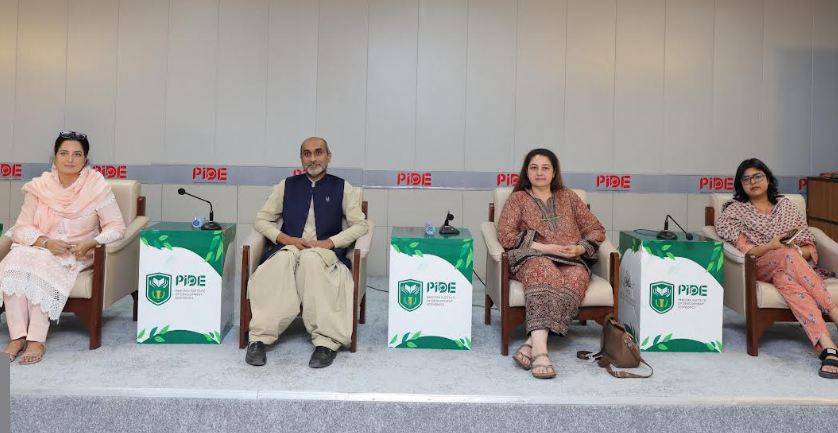The Pakistan Institute of Development Economics (PIDE) has released the findings of the Pakistan Panel Household Survey (PPHS) 2024, the country’s first fully digital longitudinal study mapping two decades of socio-economic change. Conducted in collaboration with the Pakistan Bureau of Statistics and supported by RASTA, the survey tracked 8,621 households across 30 districts and successfully reconnected with 76 percent of those interviewed in 2010.
The survey paints a complex picture of a nation advancing in health and education access but facing persistent challenges in learning outcomes, labor mobility, and food security. Despite improvements in literacy, the report highlights a “severe learning poverty,” revealing that 34 percent of students in Grades 3 to 8 cannot solve basic Grade 2-level division problems. Financial hardship remains the main reason for school dropouts, with 71 percent of parents citing costs as the primary barrier to continued education.
Labor market trends reflect stagnation. Male labor force participation has slightly declined, while women’s participation has risen only marginally. Most women remain concentrated in agriculture and informal sectors, and overall occupational mobility remains limited.
In health and nutrition, the survey reports encouraging progress. Skilled birth attendance has surged to 88.5 percent, and rates of child stunting and underweight have declined notably. Yet, food insecurity continues to affect a large portion of the population, with nearly 30 percent of households admitting they sometimes skip meals.
The findings indicate that poverty remains a significant challenge, with 30.5 percent of the population living below the poverty line. Rural areas show a higher rate of 36.6 percent compared to 17.8 percent in urban regions. Although poverty levels have fallen since 2010, income inequality has widened, and over 60 percent of households identified inflation as the most pressing economic shock.
Despite these challenges, the survey reveals signs of progress and resilience. Intergenerational mobility has improved, with university graduates making up nine percent of the younger generation compared to just one percent of their fathers. Half of all families reported being financially better off than their parents, signaling gradual upward mobility.
Dr Karim Khan, who moderated the seminar unveiling the findings, lauded the study’s methodological rigor and digital innovation. He described it as an essential tool for evidence-based policymaking, noting that the comprehensive dataset will soon be made publicly available to facilitate academic and policy research.
Related: International Survey Reveals Pakistanis Support Actions to Address Climate Change
Based on the results, PIDE has identified key policy priorities, including addressing learning poverty, expanding women’s economic participation, strengthening social safety nets, and improving job quality. The PPHS 2024 stands as a milestone in Pakistan’s policy research landscape, offering critical insights for shaping the nation’s social and economic future.



